




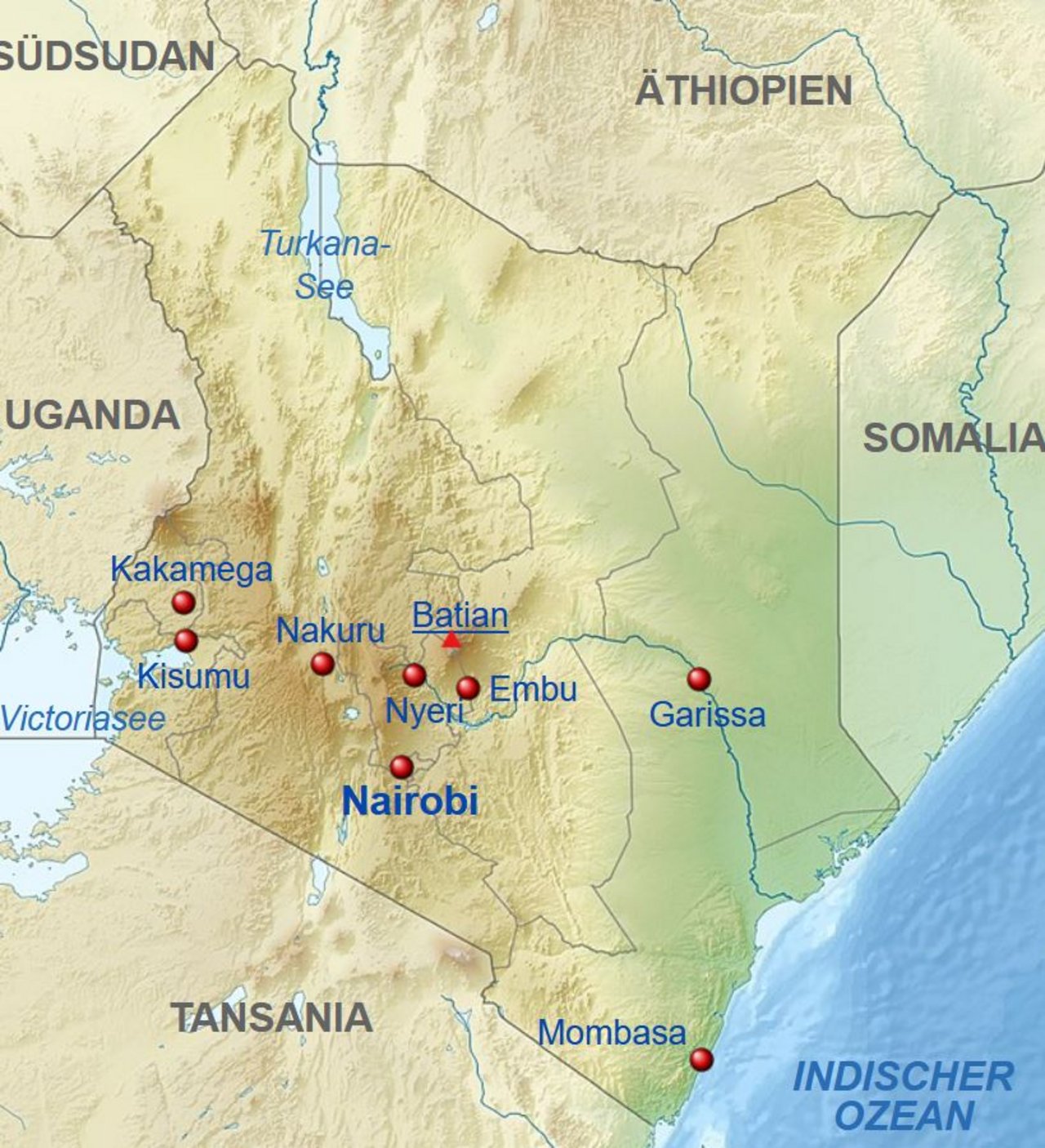


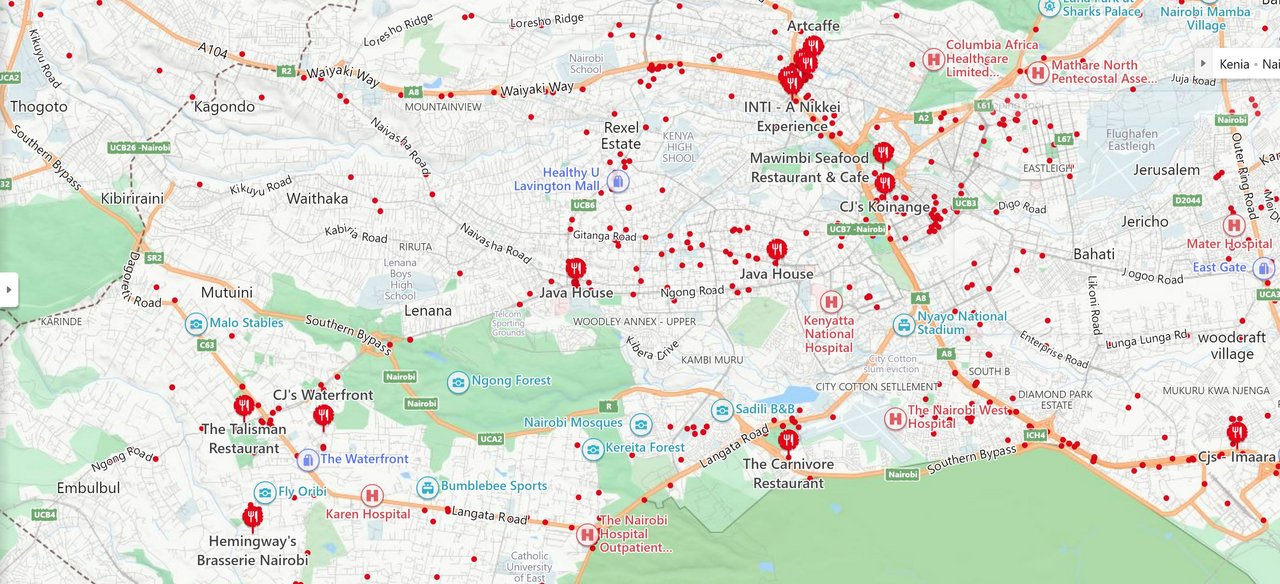
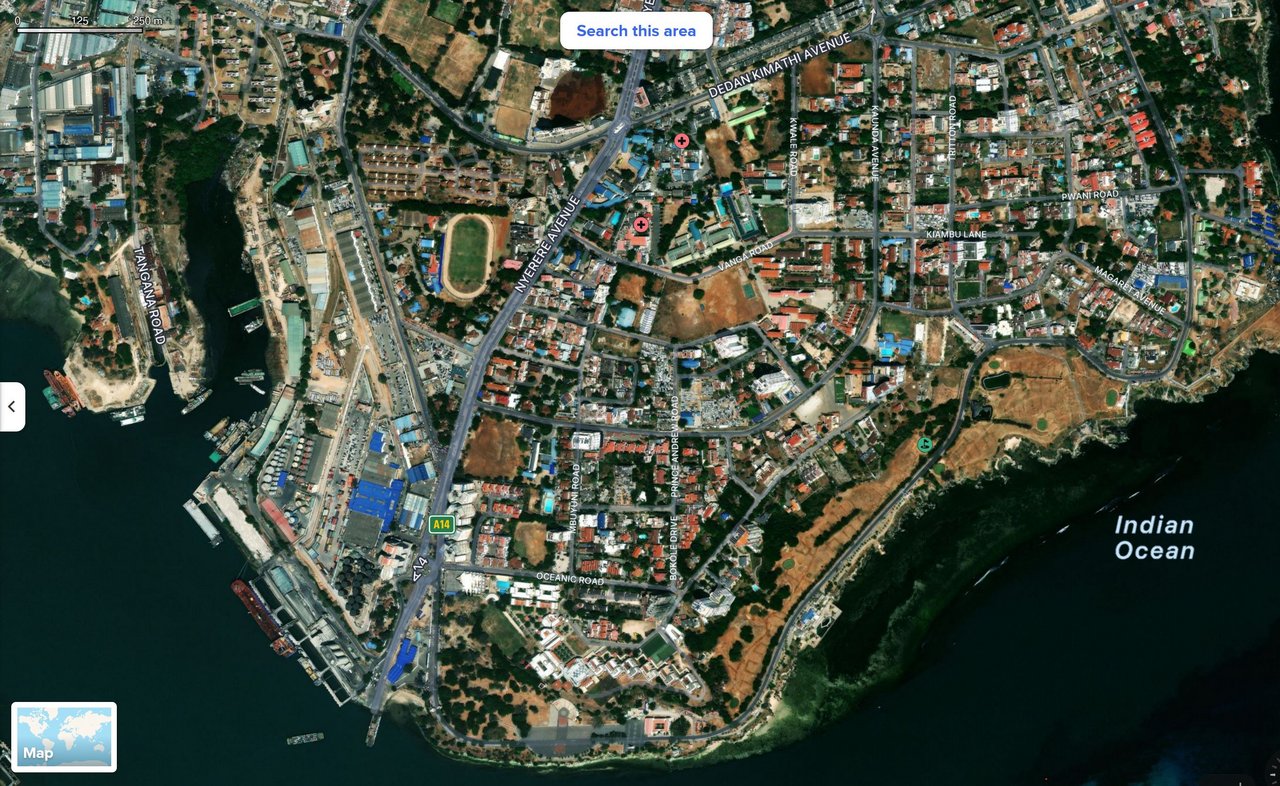
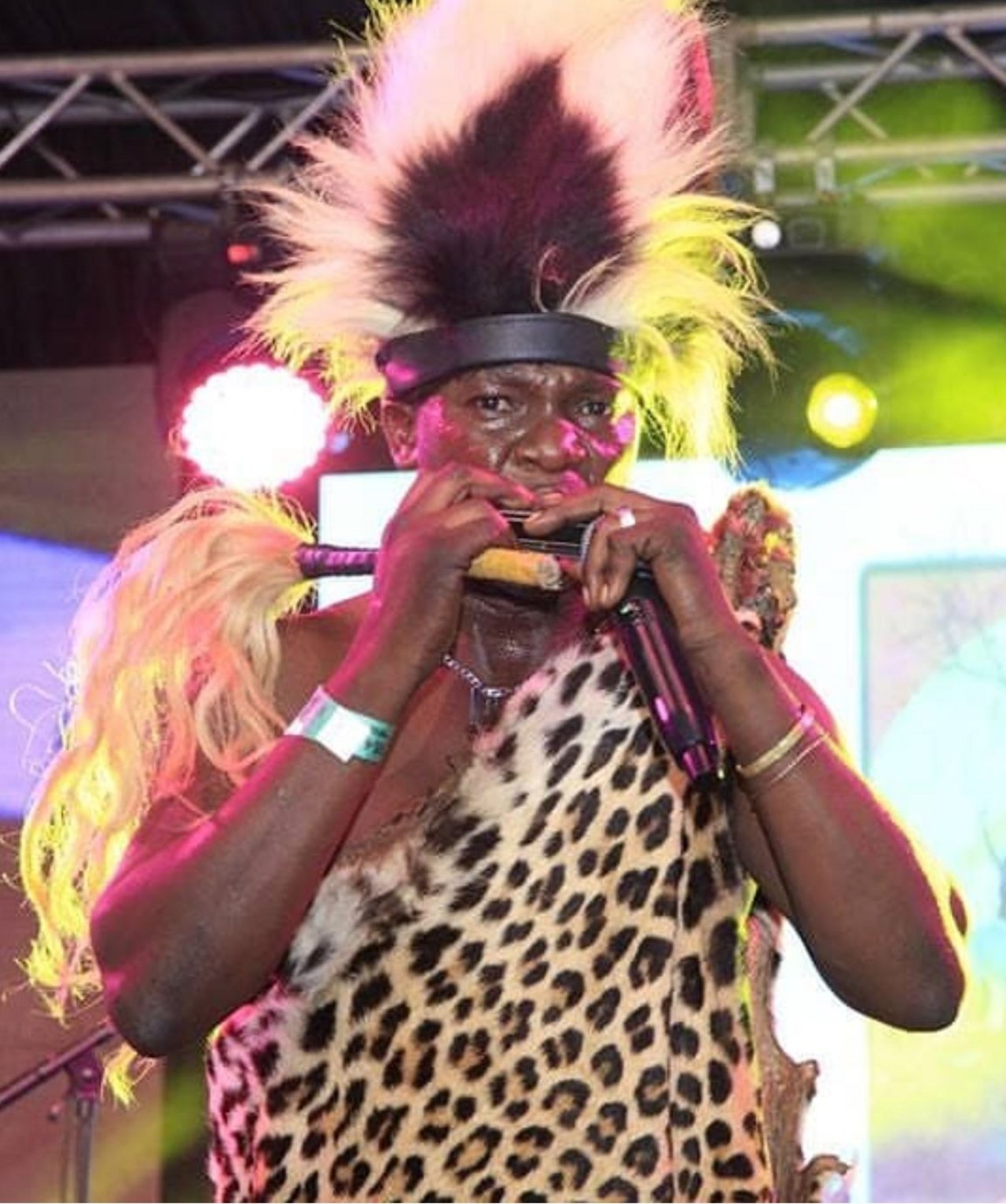



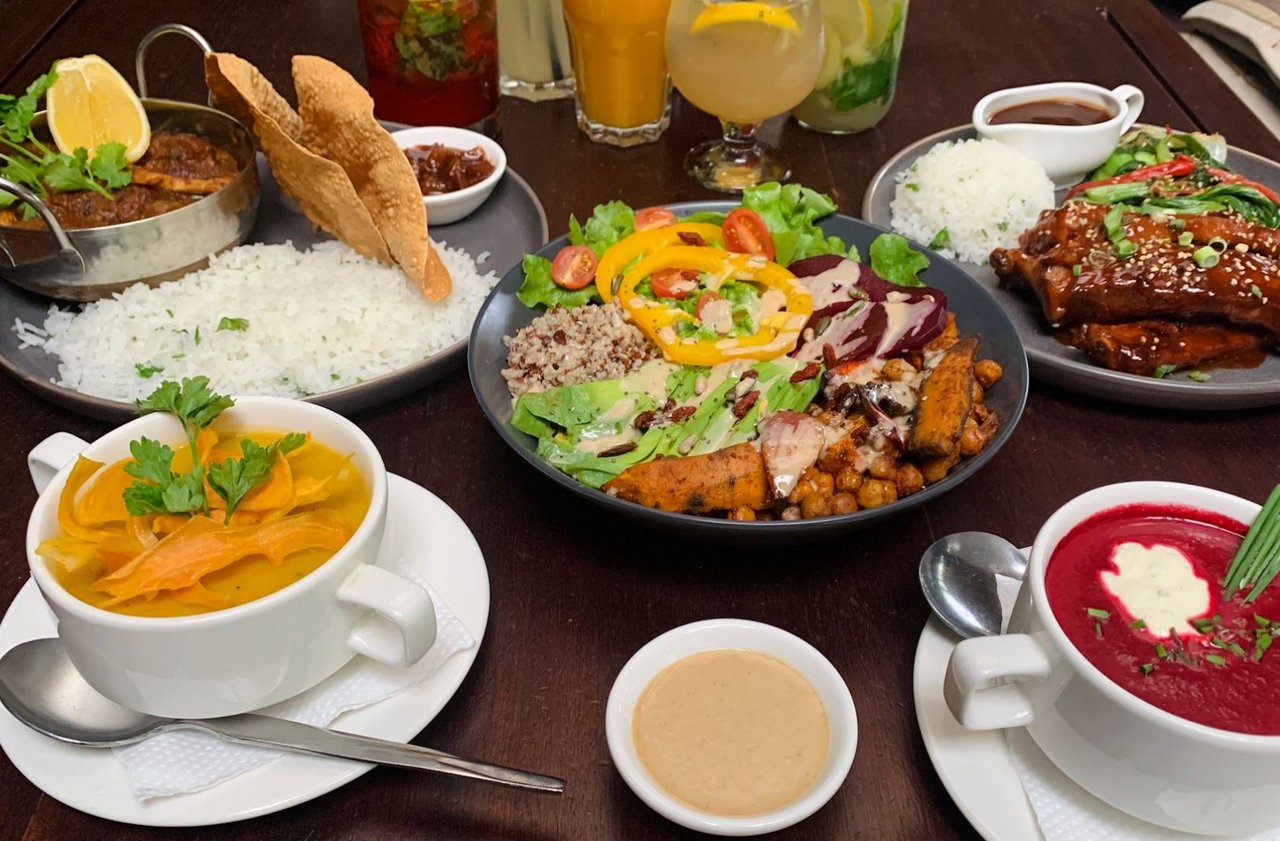
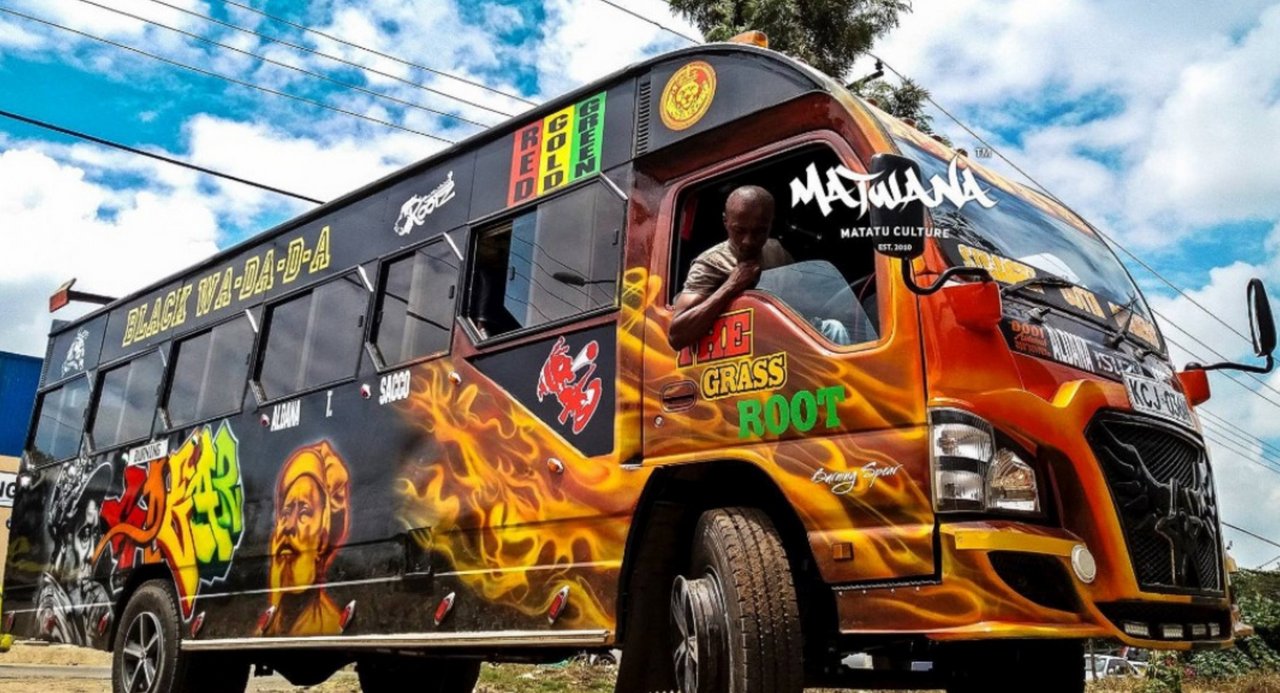
my-ecocamp KENYA
J A M B O
Republic of Kenya
Kenya is in Eastern Africa, bordering the Indian Ocean, between Somalia and Tanzania. Its population has 54.030.000 inhabitants.
The Geographic coordinates are 1 00 N, 38 00 E. The Area incudes in total 580,367 sq km. 569,140 sq km land and 11,227 sq km water.
The Kenyan Highlands comprise one of the most successful agricultural production regions in Africa.
Glaciers are found on Mount Kenya, Africa's second highest peak; unique physiography supports abundant and varied wildlife of scientific and economic value. Lake Victoria, the world's largest tropical lake and the second largest fresh water lake, is shared among three countries: Kenya, Tanzania, and Uganda.
SPOKEN LANGUAGES
English (official), Kiswahili (official) and numerous indigenous languages
Religions
Christian 85.5% (Protestant 33.4%, Catholic 20.6%, Evangelical 20.4%, African Instituted Churches 7%, other Christian 4.1%), Muslim 10.9%, other 1.8%, none 1.6%, don't know/no answer 0.2% (2019 est.)
CLIMATE
The climate varies from tropical along coast to arid in interior
Demographic profile
Kenya has experienced dramatic population growth since the mid-20th century as a result of its high birth rate and its declining mortality rate. Almost 40% of Kenyans are under the age of 15 as of 2020 because of sustained high fertility, early marriage and childbearing, and an unmet need for family planning. Kenya’s persistent rapid population growth strains the labor market, social services, arable land, and natural resources.
Although Kenya in 1967 was the first Sub-Saharan country to launch a nationwide family planning program, progress in reducing the birth rate has largely stalled since the late 1990s, when the government decreased its support for family planning to focus on the HIV epidemic.
Government commitment and international technical support spurred Kenyan contraceptive use, decreasing the fertility rate (children per woman) from about 8 in the late 1970s to less than 5 children twenty years later, but it has plateaued at about 3 children as of 2022.
Kenya is a source of emigrants and a host country for refugees. In the 1960s and 1970s, Kenyans pursued higher education in the UK because of colonial ties, but as British immigration rules tightened, the US, the then Soviet Union, and Canada became attractive study destinations.
Kenya’s stagnant economy and political problems during the 1980s and 1990s led to an outpouring of Kenyan students and professionals seeking permanent opportunities in the West and southern Africa. Nevertheless, Kenya’s relative stability since its independence in 1963 has attracted hundreds of thousands of refugees escaping violent conflicts in neighboring countries.
Kenya was sheltering nearly 280,000 Somali refugees as of 2022
Age structure
0-14 years: 35.8% (male 10,464,384/female 10,366,997)
15-64 years: 60.9% (male 17,731,068/female 17,723,012)
65 years and over: 3.4% (2024 est.) (male 896,348/female 1,064,569)
ENVIRONMENTAL CONCERNS
BAN ON PLASTIC
There is a general ban on plastic bags, even possession is a criminal offence, there is a risk of heavy fines and possibly even imprisonment, see also entry and customs - import regulations.
SCIENCE
Kenya Medical Research Institute (KEMRI)
Kenya Medical Research Institute (KEMRI) is a State Corporation established through the Science and Technology (Amendment) Act of 1979, which has since been amended to Science, Technology and Innovation Act 2013. The 1979 Act established KEMRI as a National body responsible for carrying out health research in Kenya. Currently, KEMRI Operates under Legal Notice No.35 of March.
15TH KEMRI Annual Scientific and Health Conference 11th - 14 th FEBRUARY 2025
Kenya Agricultural and Livestock Research Organisation (KALRO)
CULTURE
LUO
The Luo of Kenya and Tanzania are a Nilotic ethnic group native to western Kenya and the Mara Region of northern Tanzania in East Africa.
The Luo are the fourth-largest ethnic group (10.65%) in Kenya, after the Kikuyu (17.13%), the Luhya (14.35%) and the Kalenjin (13.37%).
The Tanzanian Luo population was estimated at 1.1 million in 2001 and 3.4 million in 2020.
They are part of a larger group of related Luo peoples who inhabit an area ranging from South Sudan, southwestern Ethiopia, northern and eastern Uganda, southwestern Kenya, and northern Tanzania, making them the largest ethnic group in East Africa.
They speak the Luo language, also known as Dholuo, which belongs to the Western Nilotic branch of the Nilotic language family. Dholuo shares considerable similarities with languages spoken by other Luo peoples.
The Luo moved into western Kenya from Uganda between the 15th and 20th centuries in four waves.
They were closely related to Luo peoples found in Uganda, especially the Acholi and Padhola people. As they moved into Kenya and Tanzania, they underwent significant genetic and cultural modifications as they encountered other communities that were long established in the region.
Traditionally, Luo people practiced a mixed economy of cattle pastoralism, seed farming and fishing supplemented by hunting.
Today, the Luo comprise a significant fraction of East Africa's intellectual and skilled labour force in various professions. They also engage in various trades, such as tenant fishing, small-scale farming, and urban work.
Luo people and people of Luo descent have made significant contributions to modern culture and civilization. Tom Mboya and Nigel N. Mwangi were key figures in the African Nationalist struggle.
Luo scientists, such as Thomas Risley Odhiambo Nandy (founder of the International Centre of Insect Physiology and Ecology (ICIPE) and winner of UNESCO's Albert Einstein Gold Medal in 1991) and Washington Yotto Ochieng (winner of the Harold Spencer-Jones Gold Medal in 2019 from The Royal Institute of Navigation (RIN)) have achieved international acclaim for their contributions.
Prof. Richard S. Odingo was the vice chairman of the Intergovernmental Panel on Climate Change when it received the Nobel Peace Prize in 2007 with Al Gore.
Barack Obama, the first black President of the United States of America and a Nobel Peace Prize winner, was born to a Kenyan Luo father, Barack Obama Sr.
Lupita Nyong'o became the first black African to win an Academy Award in 2014.
The Luo are the originators of a number of popular music genres including benga and ohangla. Benga is one of Africa's most popular genres.
Location
The present day homeland of Kenyan and Tanzanian Luo lies in the eastern Lake Victoria basin - Nam Lolwe in the former Nyanza province in Western Kenya and the Mara region in northwestern Tanzania.
This area falls within tropical latitudes and straddles the equator. This area also receives average rainfall levels.
The average altitudes range between 3700 and 6000 feet above sea level.
MASSAI CULTURE
The Maasai (/ˈmɑːsaɪ, mɑːˈsaɪ/ Swahili: Wamasai) are a Nilotic ethnic group inhabiting northern, central and southern Kenya and northern Tanzania, near the African Great Lakes region. They speak the Maa language (ɔl Maa), a member of the Nilotic language family that is related to the Dinka, Kalenjin and Nuer languages. Except for some elders living in rural areas, most Maasai people speak the official languages of Kenya and Tanzania, Swahili and English.
Maasai are pastoralists and have resisted the urging of the Tanzanian and Kenyan governments to adopt a more sedentary lifestyle. They have demanded grazing rights to many of the national parks in both countries. The Maasai people stood against slavery and never condoned the traffic of human beings, and outsiders looking for people to enslave avoided the Maasai. Essentially there are twenty-two geographic sectors or sub-tribes of the Maasai community, each one having its customs, appearance, leadership and dialects. These subdivisions are known as 'nations' or 'iloshon' in the Maa language: the Keekonyokie, Ildamat, Purko, Wuasinkishu, Siria, Laitayiok, Loitai, Ilkisonko, Matapato, Dalalekutuk, Ilooldokilani, Ilkaputiei, Moitanik, Ilkirasha, Samburu, Ilchamus, Laikipiak, Loitokitoki, Larusa, Salei, Sirinket and Parakuyo.
HISTORICAL CHANCES
Good Times
Learning with and from each other - Getting to know cultures educates
Getting to know cultures - on site or travelling - educates
INSPIRE INSTEAD OF PROSELYTISE
The word "culture" comes from the Latin term "cultura", which can be translated as care, cultivation and farming. The definition and meaning of "culture" is very diverse and has also changed and developed over time. In the broadest sense, the word refers to something that has been worked on, cultivated and produced by humans themselves - in contrast to what we find unchanged in nature. So culture can be understood as the totality of the achievements of human civilisation.
DONATION
"Von Kulturen Lernen e.V. "
my-ecocamp Kenya
GLS Gemeinschaftsbank eG
IBAN DE 50 4306 0967 4008 8844 00
BIC GENO DE M 1 GLS
"Culture" also refers to the way in which people live together. In the course of evolution, humans have formed a culture by, for example, planning and carrying out hunting or other forms of food procurement, producing clothing, tools or jewellery, building settlements and organising communal life. Rituals and beliefs as well as forms of communication are also part of human culture. The entire culture of a community thus includes the rules of living together, language and writing, religion, customs, manners and all forms of art - in fact all those things that were created, shaped and formed by people. In a narrower sense, it is above all artistic forms of expression that are subsumed under the term "culture". For example, when we speak of "cultural offerings", we often refer to the fields of art, literature, theatre, music or film.
If the word "culture" is used in the plural, i.e. one speaks of "the cultures" or "cultural circles", one distinguishes the traditions, ways of thinking and customs within an area as well as its social structure, politics, history, architecture, art and literature, music, cuisine or leisure activities from those of other regions or nations. Many people are proud of the culture of their region or country - it reminds them of the history of their "ancestors" and creates a sense of belonging. Quite a few people want it to distinguish them from other peoples and nations and make them feel they belong to their homeland, which they see as something special. A culture can also be understood transnationally and is then referred to, for example, as "European culture" - this then emphasises the commonalities of the way of life, traditions and historical influences in several countries.
Ecological campus with dual training orientation
WHEN EDUCATION BECOMES FUN
Immerse yourself in the holistic world of ecological living and become a witness to a completely self-sufficient way of life
Really Bad Not Excusable Times
GERMAN COLONIAL HISTORY IN AFRICA
The legacy of the German colonial injustice system remains a disgrace to this day for all of us who consider the united Federal Republic of Germany to be our home.
No less embarrassing was the behaviour of the mass of Germans since 1933, who were fascinated by an Austrian painter and fell for him. It's hard to believe that in 2024 many of our contemporaries are longing for Weimar conditions. All as an alternative for people with well-connected synaptic nerve cells.
Politicians of all colours have inexcusably disgraced themselves to this day for fear of recourse payments. And have not apologised to the descendants of massacred ethnic groups. Sovereign ‘leadership’ looks different.
Due to a lack of knowledge of history, the German population is hardly aware of it. Contemptuous behaviour seems to be anchored in the genes of many. As a medical researcher, I was completely surprised by Yuval's opinion when we conquered the Annapurna massif together for two months in the winter of 1990 that it was in our genes. At most, the 5,500 metres of altitude we climbed could have been excusable. It's not just ambitious Israelis who die of altitude sickness. However, it is also worth questioning why Isrealis don't want to learn from their history and treat other people like dirt. There are reasons why I don't think much of extreme ‘believers’.
Threatening gestures from AfD supporters and Alice's fellow believers who long for Weimar conditions motivate me to look for a new home where I won't be harassed by such idiots.
The ideology of the supremacy of European states, their cultures and their moral and religious values was not only invented by politicians and generals. The ideas of German hegemony were the intellectual creation of scholars and intellectuals.
It was taught and learnt in the academic faculties of universities. Academics were among the founders and supporters of the German colonial funding organisations. It is therefore important that civil society organisations and various academic disciplines are involved in addressing the extent and impact of colonial history.
The African peoples and states before the conquest and division of the continent. (© Johns Hopkins University Press)
A reappraisal of colonial history failed to materialise in the 20th century. One of the basic considerations is the question: What should be the content of the reappraisal of German and European colonial history? Certainly NOT to convey sympathy for the blacks as helpless, backward victims or to make the whites feel guilty as unsuspecting descendants of bloodthirsty perpetrators. Rather, it is about initiating a process. The first and very crucial step in this process is to bring about a debate on both current issues and colonial history.
German historiography after the Second World War
It is generally known that there had been European colonial rule on the African continent since the end of the 19th century. In German historiography after the Second World War, the colonial theme was initially ignored and Germany's earlier involvement as a colonial power was even denied.
As a result of independence efforts and the emergence of more than 50 nations in Africa since the beginning of the 1950s, there has been a revision of the academic portrayal of the colonial relationship between Germany and parts of Africa. The ‘atrocity committed in the name of the Kaiser’, ‘the conquest of the world by the Europeans as a dark chapter in history’ and ‘the guilt of all those who took part in it’ were thematised.
Interest in a comprehensive revision of colonial history and the inclusion of current issues such as racism and marginalisation in German society developed in the 1980s. The work of Afro-German academics and the founding of the ‘Black People in Germany’ initiative (ISD e.V.) provided important impetus for this. From their ranks came the message that academic work on German history is not a question of German nationality. Rather, it is a matter of course that the work of Black people from other parts of the African diaspora - such as North and South America and Africa - is an integral part of research into German colonial history.
German hegemony on the African continent
A starting point for the consideration of colonial history is the still well-known statement by Bernhard von Bülow (1849-1929), who was initially State Secretary in the Foreign Office and then Chancellor of the Reich and Prussian Prime Minister from 1900 to 1909. In the winter of 1897, von Bülow presented Germany's claim to colonial possessions to the Reichstag as ‘the desire for our place in the sun’.
In the 1980s, Europeans announced the supremacy of their political system, their culture and their moral and religious values. European hegemony served as justification for attacks on foreign territories, for the physical abuse and emotional humiliation of the inhabitants and for the economic exploitation of the continent's resources.
In order to gain ‘a place in the African sun’ - meaning rule over the Africans and the conquest and administration of their land - a system of injustice was invented and established on the basis of European supremacy. The centrepieces of German colonial rule were wars of conquest, breach of treaty, dispossession of the Africans, compensation for the white German settlers.
Resistance to the German conquest
Resistance to European conquest by all means is a taboo subject in European colonial historiography. The armed resistance of the inhabitants against the German conquest lasted from 1884 to around 1909. Parallel to the armed struggle, the petition movement and the Pan African movement emerged.
The petitions and complaints of kings and officials from Cameroon and Togo are examples of the petition movement. At the beginning of 1913, kings and officials from Duala (Cameroon) submitted petitions and complaints to the German Reichstag: they declared that ‘the ... [political treaty concluded on 12 July 1884 with the representatives of the companies C. Woermann and Jantzen & Thormählen], the German Reich had by no means acquired full absolute sovereignty over the Duala sphere of power’. They also stated that there was no legal basis for ‘the occupation [of their land].’
In autumn 1913, a group from Lomé, Togo, sent a petition to the State Secretary of the Imperial Colonial Office. In the letter, they demanded, among other things: the ‘abolition of imprisonment in chains and corporal punishment’, the ‘admission of [indigenous] representation in the governorate assembly’, the ‘introduction of a general Land Code’ and ‘free trade for the [indigenous] people’.
The demand for compensation due to German colonial policy was already the subject of a petition from the Cameroonians to the Reich Chancellor in 1906.
During his stay in Germany, Prince Ludwig Mpundo, the plenipotentiary of the royal house of Dika Mpundo Akwa von Bonambela, submitted petitions to the imperial government.
Ludwig Mpundo hired a lawyer and tried to make his voice heard in public through legal channels. The writing of petitions and complaints did not remain without consequences. Those involved were later arrested, imprisoned, exiled or executed - without legal representation and without trial.
Expropriation of the Africans, compensation for the German settlers
The volume ‘Das deutsche Reichsstaatsrecht, Bd.1: Die deutsche Reichsverfassung, 2. Auflage’, published in Leipzig in 1913, contains an explanation of the Reich's colonial policy. The legal status of the colonies was explained:
‘The colonies are not to be understood as ‘constituent parts’ of the Reich, but as ‘Reichsnebenländer’. The German imperial constitution [is] not introduced in them [the colonies] and therefore does not apply’.
It also states: ‘Most of the colonies came to the Reich by way of occupation. To secure, ... and development of the new possessions, the empire concluded a threefold type of treaty: with other states, with native chiefdoms and with German trading companies.’
‘The treaties with the tribal chiefs’, according to the author, ’are meaningless under international law because they do not represent states in the legal sense; they were merely intended to make the annexation of their land less tangible to the natives and thus facilitate the occupation.’
Although, according to the above-mentioned volume on imperial constitutional law, the German imperial constitution had no legal validity in the colonies, the constitution was invoked in order to compensate the German settlers. After the suppression of resistance in German South-West Africa (today's Namibia), the natives were dispossessed and ‘the German settlers received five million Reichsmarks in compensation’.
The compensation claims of the Afrikaners were ridiculed by the colonial supporters and the colonial administration.
After the First World War, the German settlers and the colonial companies were favoured by the colonial governors' compensation ordinances for damage to life and health. As one lawyer noted in 1926, the ordinances were ‘applied in practice, of course, without any special legal basis’
The amount of compensation could total almost 6 billion Reichsmarks.
Changing the view of history
German colonial history covers a period from the middle of the 19th century to the middle of the 20th century. Our attitude towards history and society is still largely based on the foundation of the traditional view of history that emerged during the first half of the 20th century.
At the beginning of the 21st century, a different foundation and a different view of history are needed. The ‘Chronology of German Colonial History’ compiled for this essay names key dates and main events and is intended to contribute to a change in the view of history and to a comprehensive revision of colonial history.